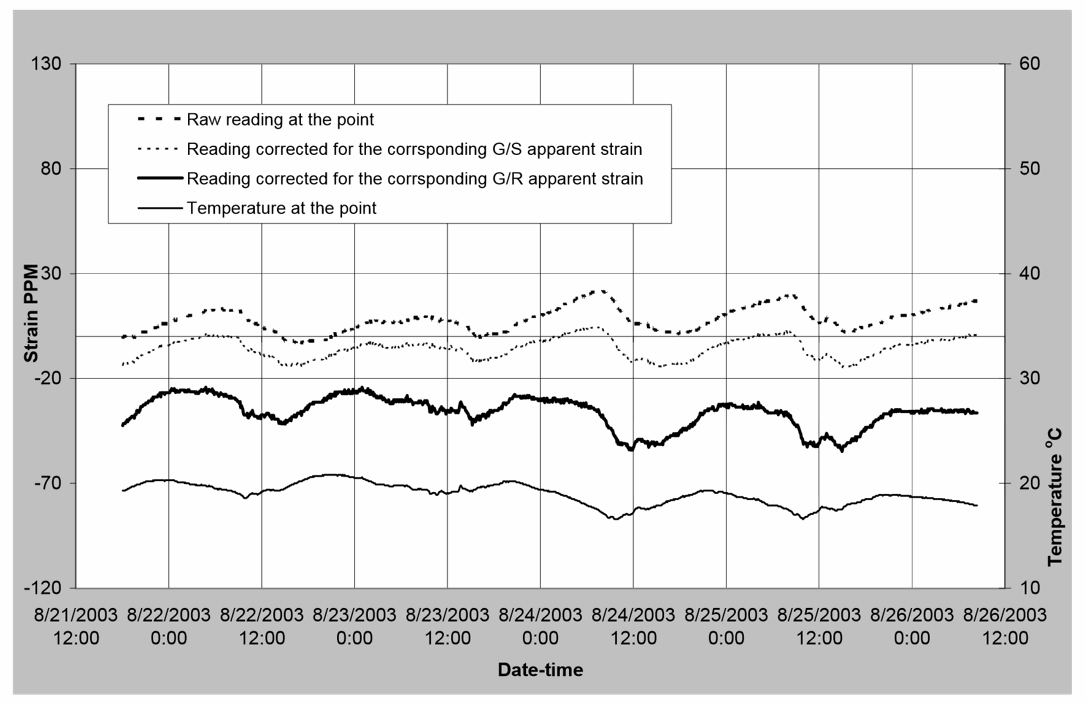A.V. Gayevoy1 and S.L. Lissel2
- M.Sc. Candidate, Dept of Civil Engineering, University of Calgary, 2500 University Dr. NW, Calgary, AB, T2N 1N4, agayevoy@ucalgary.ca
- Assistant Professor, Dept of Civil Engineering, University of Calgary, sllissel@ucalgary.ca
ABSTRACT
Two CFRP prestressed diaphragm masonry walls built on the University of Calgary campus are the subject of an ongoing monitoring program. Two short-term monitoring sessions were held to investigate the influence of the solar radiation on the masonry strains. During data processing some unexpected observations in the readings were made. Upon further investigation the influence of temperature and the resulting apparent strain was recognized. The subsequent study showed the necessity to determine the Coefficients of Thermal Expansion (CTE) of brick and masonry used for the wall’s construction. This paper discusses the motives and background of the CTE tests, describes the test procedure and reports the results. Also, the readings from the two short-term monitoring sessions corrected for the apparent strain influence are presented and discussed.
KEYWORDS: electric resistance strain gauge, apparent strain, coefficient of thermal expansion, monitoring
5c-4



